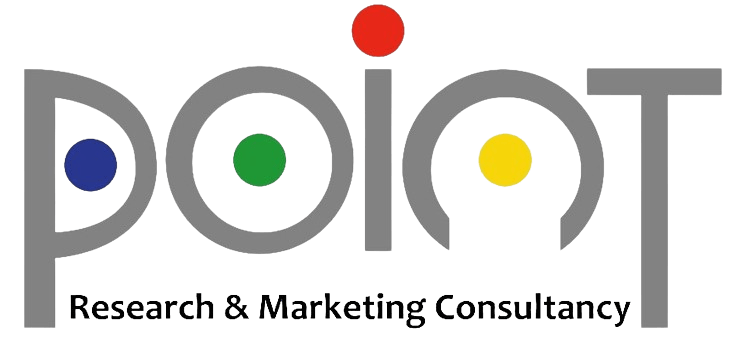
In today’s data-driven world, information is power. Every business, from startups to global enterprises, relies on data to make informed decisions. Data collection services play a critical role in gathering, analyzing, and leveraging this information to drive business growth. But what exactly are these services, and why are they so important?
Why Data Collection is Vital in the Modern Era :
The Growth of Data
The sheer volume of data generated daily is staggering. From social media interactions to online purchases, nearly everything we do creates data. Businesses that can tap into this treasure trove of information gain a competitive edge.
Decision Making in Business
Data-driven decisions lead to better outcomes. Whether it’s identifying customer preferences or forecasting market trends, having accurate data is essential for making informed choices that reduce risks and maximize profits.
Types of Data Collection Methods
There are two main types of data collection methods: primary and secondary. Each serves different purposes and offers unique insights.
Primary Data Collection
Surveys and Questionnaires
Surveys are one of the most common methods used to gather primary data. They allow businesses to collect specific information from their target audience, enabling them to analyze trends and patterns.
Interviews
Interviews offer more in-depth insights, allowing businesses to understand the motivations behind certain behaviors. These can be conducted face-to-face, over the phone, or through video conferencing.
Focus Groups
Focus groups involve gathering a group of people to discuss a product, service, or issue. This method provides qualitative data that can offer deeper insights into consumer perceptions.
Secondary Data Collection
Online Databases
Online databases provide a wealth of information. From academic studies to market research reports, businesses can access previously gathered data to inform their strategies.
Public Records
Government agencies and organizations often publish reports and data that businesses can use. These include census data, economic reports, and health statistics.
Key Benefits of Using Data Collection Services
Data collection services offer numerous advantages that help businesses thrive in competitive markets.
Improved Decision Making
With accurate data, companies can make well-informed decisions that drive success. This reduces guesswork and helps businesses stay ahead of market trends.
Personalized Marketing
By understanding consumer behavior through data, businesses can create highly targeted marketing campaigns. Personalization leads to better customer experiences and higher conversion rates.
Enhanced Product Development
Data collection services allow businesses to gather customer feedback, identify gaps in the market, and refine product offerings, leading to more successful product launches.
Industries Benefiting from Data Collection Services
Healthcare
Data collection in healthcare helps improve patient care by enabling better diagnosis, treatment plans, and personalized medicine approaches.
Retail
Retailers use data to track customer preferences, optimize stock levels, and create personalized shopping experiences both online and in-store.
Education
Educational institutions leverage data to improve teaching methods, track student performance, and design effective curriculums.
Finance
In the finance sector, data collection aids in fraud detection, risk assessment, and personalized financial services for customers.
Steps in Data Collection Process
Defining Objectives
The first step is to define clear objectives. What do you want to achieve with the data? Setting goals will guide the entire process.
Choosing a Data Collection Method
Depending on the objectives, businesses need to select the most appropriate method—whether it’s surveys, interviews, or secondary data analysis.
Data Collection Execution
Once the method is chosen, the next step is to collect the data. This could involve deploying online surveys, conducting interviews, or extracting data from existing sources.
Data Validation
Validating the data ensures that it’s accurate, reliable, and free from errors. This is crucial for making sound business decisions.
Common Challenges in Data Collection
Data Privacy Concerns
With increasing concerns around data privacy, businesses must ensure they are compliant with laws like GDPR and other regulations.
Quality Control
Not all data is good data. It’s important to filter out inaccurate or irrelevant information to maintain the quality of the dataset.
Managing Big Data
Handling vast amounts of data can be overwhelming. Implementing tools and strategies to manage big data effectively is key to gaining actionable insights.
How Technology is Revolutionizing Data Collection
AI and Machine Learning
Artificial Intelligence (AI) and machine learning algorithms can analyze large datasets quickly, identifying patterns and trends that would be impossible for humans to detect.
Internet of Things (IoT)
IoT devices collect real-time data from connected devices, providing businesses with up-to-the-minute information on various aspects of their operations.
Blockchain
Blockchain technology is improving data security by providing transparent, immutable records of data transactions, reducing the risk of tampering or fraud.
Best Practices for Effective Data Collection
Ensuring Data Accuracy
Always verify the source and reliability of your data to ensure accuracy. Inaccurate data leads to poor decision-making.
Maintaining Data Security
Implement strict data security protocols to protect sensitive information. Encryption, access controls, and regular audits are essential.
Regular Data Audits
Conducting regular audits helps identify discrepancies or errors in data and ensures your dataset remains relevant and accurate.
The Role of Ethical Considerations in Data Collection
Data collection must be carried out ethically, respecting individuals’ privacy and adhering to legal standards. Transparency and consent are key principles in responsible data collection.
Future Trends in Data Collection Services
Automation
The future of data collection lies in automation. Automated systems can collect and analyze data in real time, reducing human error and increasing efficiency.
Real-Time Data Collection
As technology advances, the ability to collect data in real-time is becoming more prevalent. This will allow businesses to react quickly to market changes and customer needs.
How to Choose the Right Data Collection Service for Your Business
Choosing the right service depends on your business goals, industry, and budget. Look for a provider that offers tailored solutions, robust security, and a track record of success.
The Cost of Data Collection Services
The cost can vary widely depending on the scope and complexity of the data collection. It’s important to weigh the potential return on investment against the cost to determine the best approach.
Conclusion
Data collection services are the backbone of any successful business strategy in today’s digital landscape. Whether you’re looking to improve decision-making, personalize your marketing, or develop new products, collecting and analyzing data is essential. As technology continues to evolve, the methods of data collection will become even more sophisticated, offering businesses unprecedented insights into their operations and customers.
Post a comment Cancel reply
Related Posts
Business Strategy Planning Services in UAE for Measurable Results
Business Strategy Planning Services in UAE enable organizations to advance their operations through complete…
Commercial Feasibility Study in UAE for Smart Investment Decisions
The process of conducting a commercial feasibility study in UAE provides essential information that…
Market Research UAE to Reduce Risk and Improve Business Planning
Market research UAE remains a powerful lever for those enterprises that seek to less…
NPS Survey Company UAE: Measuring Customer Loyalty and Satisfaction
NPS Survey Company UAE is becoming more significant in the Middle East marketplace. Businesses…







